Seth Meyers wonders just how prepared Ben Carson is to lead HUD's hurricane relief efforts

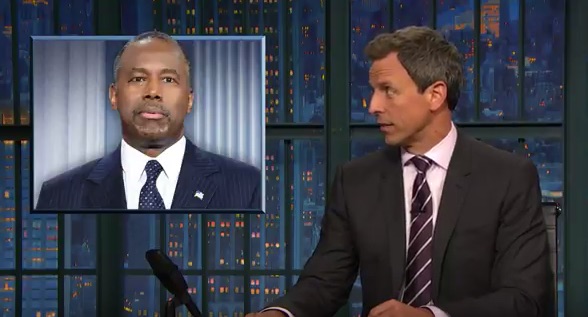
A free daily email with the biggest news stories of the day – and the best features from TheWeek.com
You are now subscribed
Your newsletter sign-up was successful
As people in Texas, Florida, and other states affected by Hurricanes Harvey and Irma start to rebuild, many will have to rely on assistance from the Department of Housing and Urban Development (HUD), and that's slightly worrisome, Seth Meyers said, considering who's at the helm.
Before entering politics, HUD Secretary Ben Carson was a gifted and respected neurosurgeon, but that doesn't make a person qualified to run a major government agency, Meyers said on Tuesday's Late Night. Carson has made statements that run counter to the organization's core mission, said people shouldn't feel too comfortable in public housing (announcing this after getting stuck inside an elevator at a Miami housing complex), and has yet to fill several positions at HUD. To really make his point, Meyers showed clips from a semi-bonkers speech Carson made at HUD in March, where he discussed how as a kid he loved going to the doctor to "smell the alcohol swabs," and marveled at his ability to make a hole in the side of a person's head to put depth electrodes into their hippocampus. "What does that have to do with Housing and Urban Development?" Meyers asked. "How many alcohol swabs did you smell?"
Adding to questionable leadership is the fact that under Trump's budget plan, HUD's next budget would be cut 13 percent from 2017, which would make an impact on people who have no choice but to turn to HUD for help rebuilding homes and businesses. Trump did sign a $15 billion hurricane-related aid bill, Meyers acknowledged, but it seems clear the administration does not understand the importance of programs like HUD. "Now is not the time to cut back on disaster relief programs," he said. "Especially not when hurricanes are lining up like they have numbers at a deli." Watch the video below. Catherine Garcia
The Week
Escape your echo chamber. Get the facts behind the news, plus analysis from multiple perspectives.

Sign up for The Week's Free Newsletters
From our morning news briefing to a weekly Good News Newsletter, get the best of The Week delivered directly to your inbox.
From our morning news briefing to a weekly Good News Newsletter, get the best of The Week delivered directly to your inbox.
A free daily email with the biggest news stories of the day – and the best features from TheWeek.com
Catherine Garcia has worked as a senior writer at The Week since 2014. Her writing and reporting have appeared in Entertainment Weekly, The New York Times, Wirecutter, NBC News and "The Book of Jezebel," among others. She's a graduate of the University of Redlands and the Columbia University Graduate School of Journalism.
-
 Trump’s EPA kills legal basis for federal climate policy
Trump’s EPA kills legal basis for federal climate policySpeed Read The government’s authority to regulate several planet-warming pollutants has been repealed
-
 Political cartoons for February 13
Political cartoons for February 13Cartoons Friday's political cartoons include rank hypocrisy, name-dropping Trump, and EPA repeals
-
 Palantir's growing influence in the British state
Palantir's growing influence in the British stateThe Explainer Despite winning a £240m MoD contract, the tech company’s links to Peter Mandelson and the UK’s over-reliance on US tech have caused widespread concern
-
 Death toll from Southeast Asia storms tops 1,000
Death toll from Southeast Asia storms tops 1,000speed read Catastrophic floods and landslides have struck Sri Lanka, Indonesia, Thailand and Malaysia
-
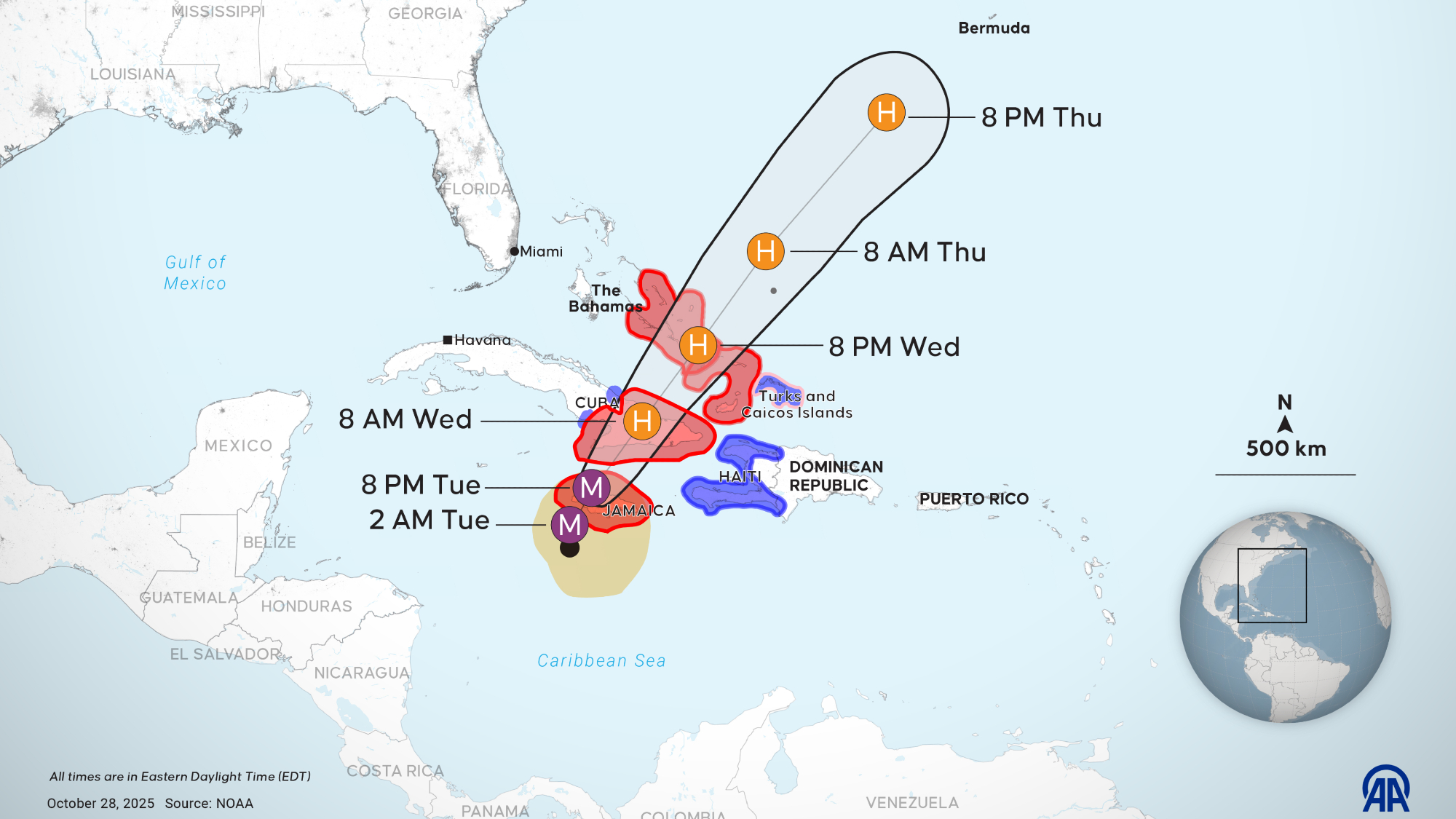 Hurricane Melissa slams Jamaica as Category 5 storm
Hurricane Melissa slams Jamaica as Category 5 stormSpeed Read The year’s most powerful storm is also expected to be the strongest ever recorded in Jamaica
-
 Renewables top coal as Trump seeks reversal
Renewables top coal as Trump seeks reversalSpeed Read For the first time, renewable energy sources generated more power than coal, said a new report
-
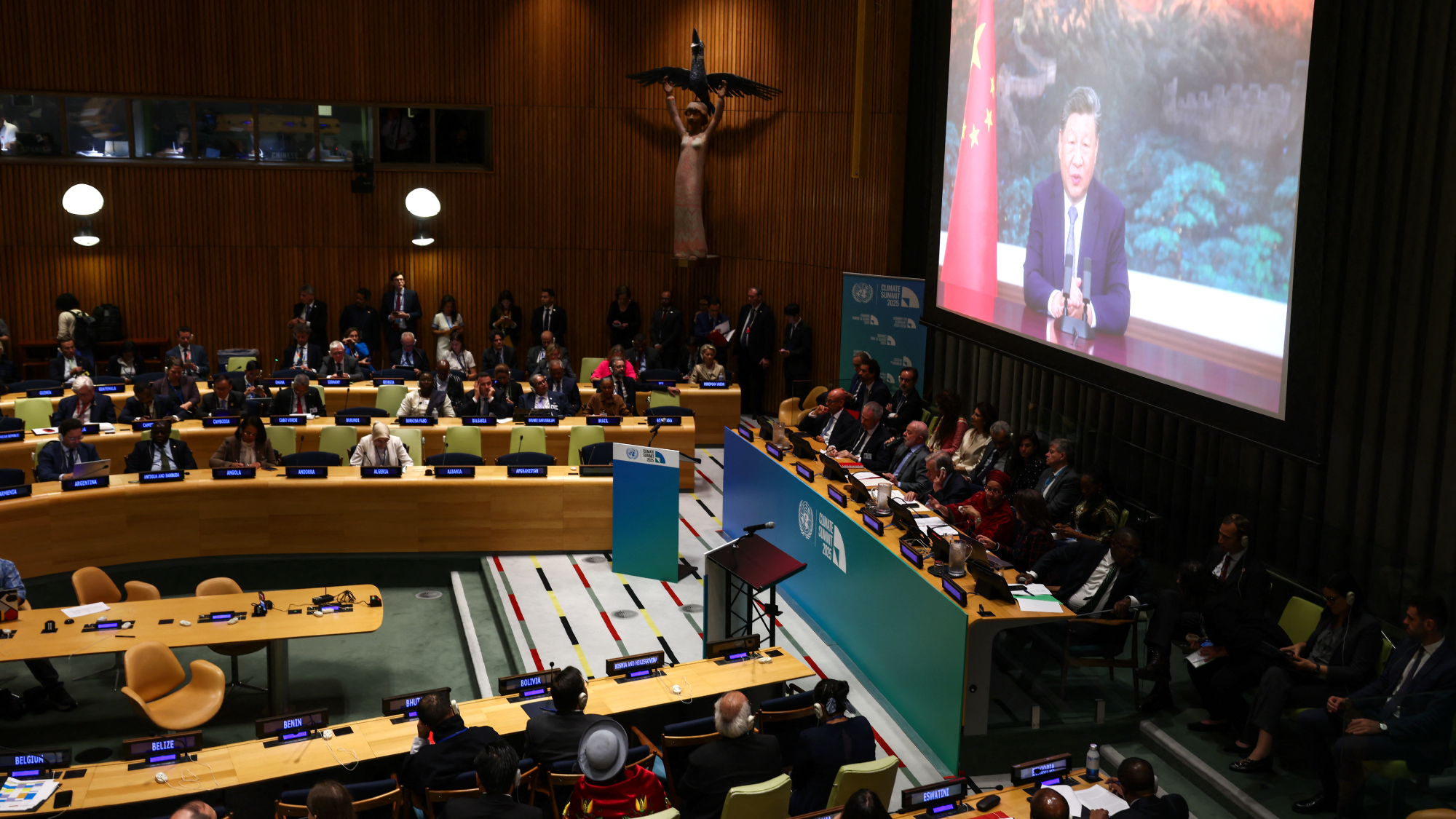 China vows first emissions cut, sidelining US
China vows first emissions cut, sidelining USSpeed Read The US, the world’s No. 2 emitter, did not attend the New York summit
-
 At least 800 dead in Afghanistan earthquake
At least 800 dead in Afghanistan earthquakespeed read A magnitude 6.0 earthquake hit a mountainous region of eastern Afghanistan
-
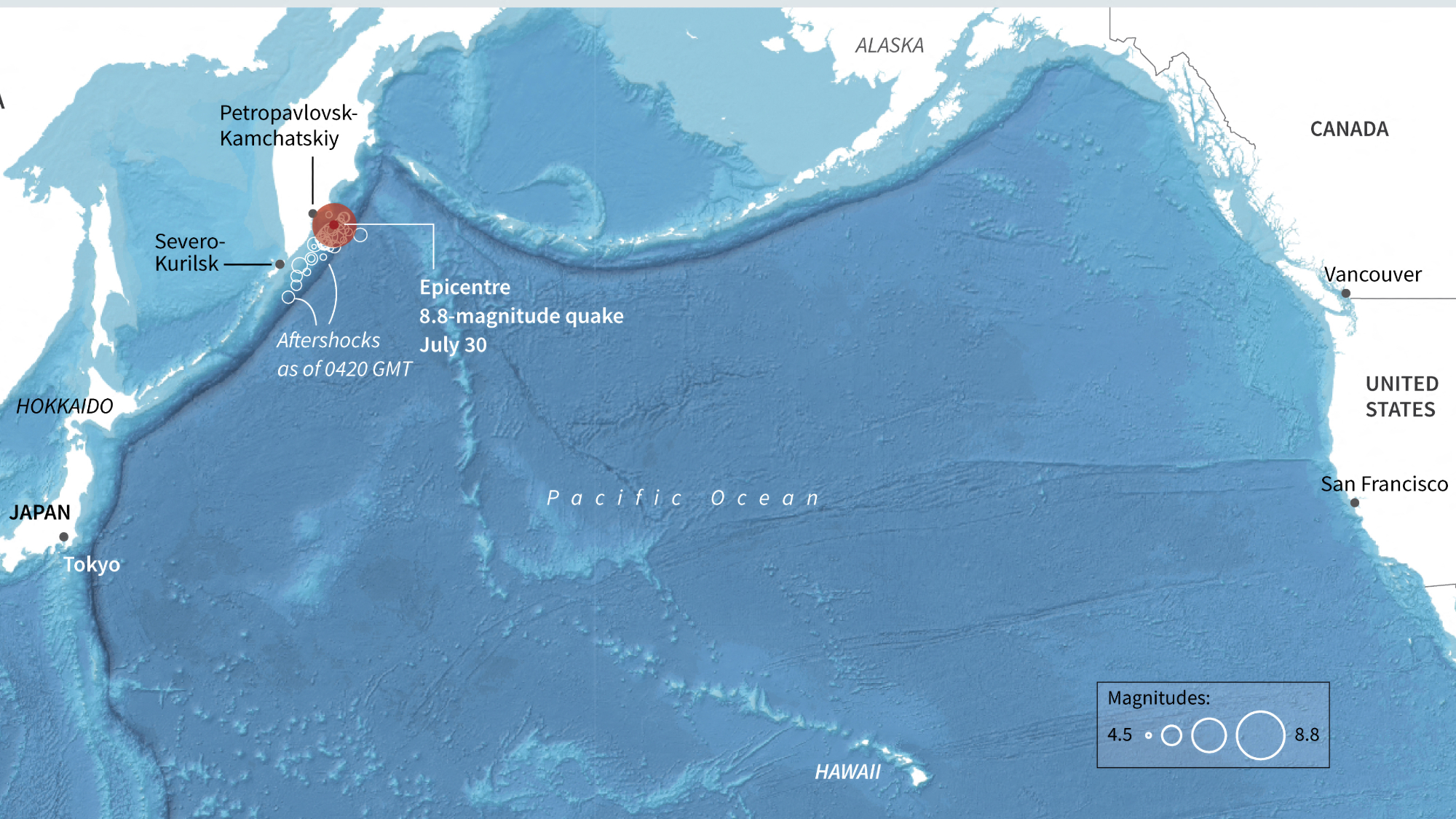 Massive earthquake sends tsunami across Pacific
Massive earthquake sends tsunami across PacificSpeed Read Hundreds of thousands of people in Japan and Hawaii were told to evacuate to higher ground
-
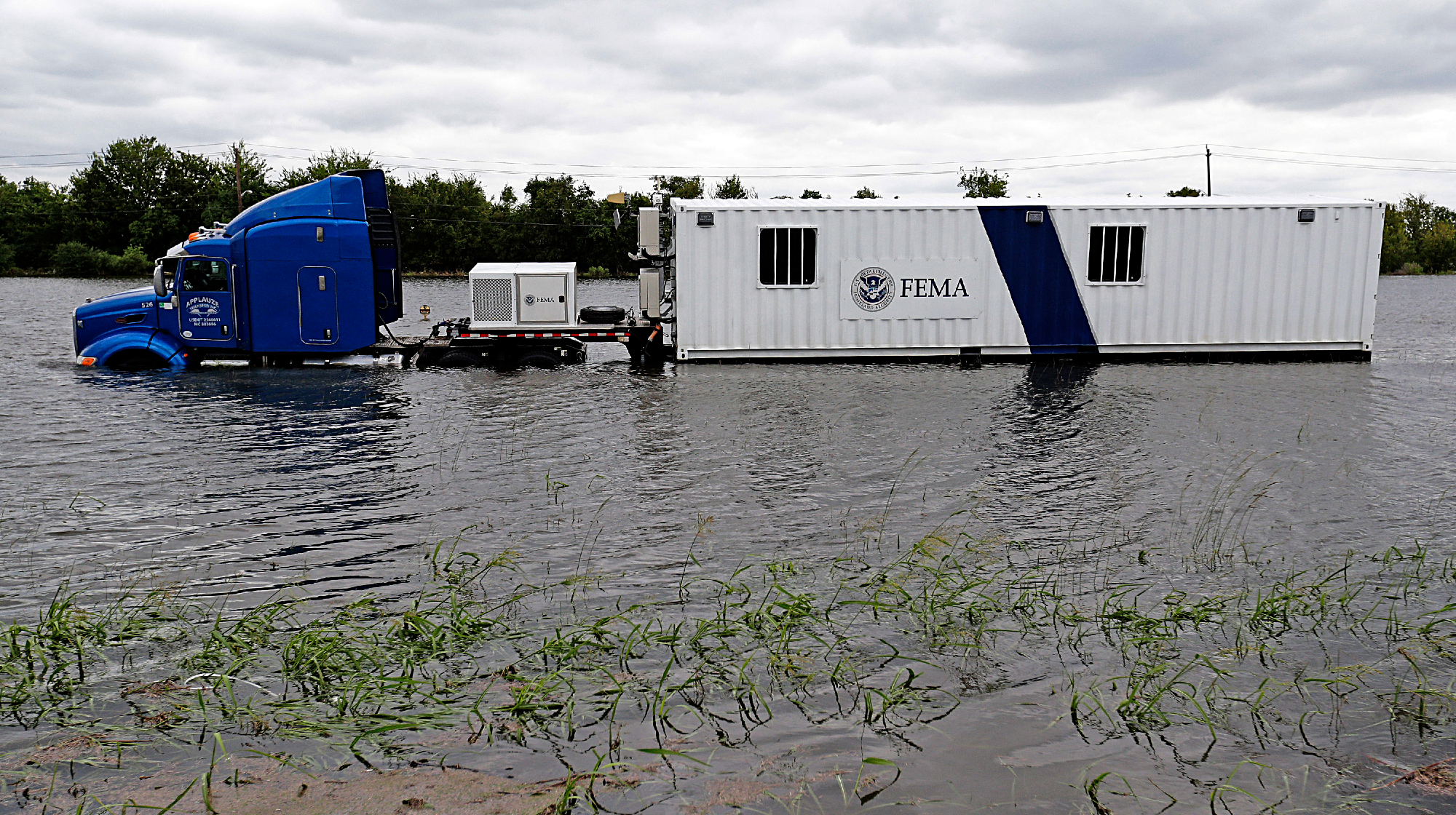 FEMA Urban Search and Rescue chief resigns
FEMA Urban Search and Rescue chief resignsSpeed Read Ken Pagurek has left the organization, citing 'chaos'
-
 Wildfires destroy historic Grand Canyon lodge
Wildfires destroy historic Grand Canyon lodgeSpeed Read Dozens of structures on the North Rim have succumbed to the Dragon Bravo Fire
